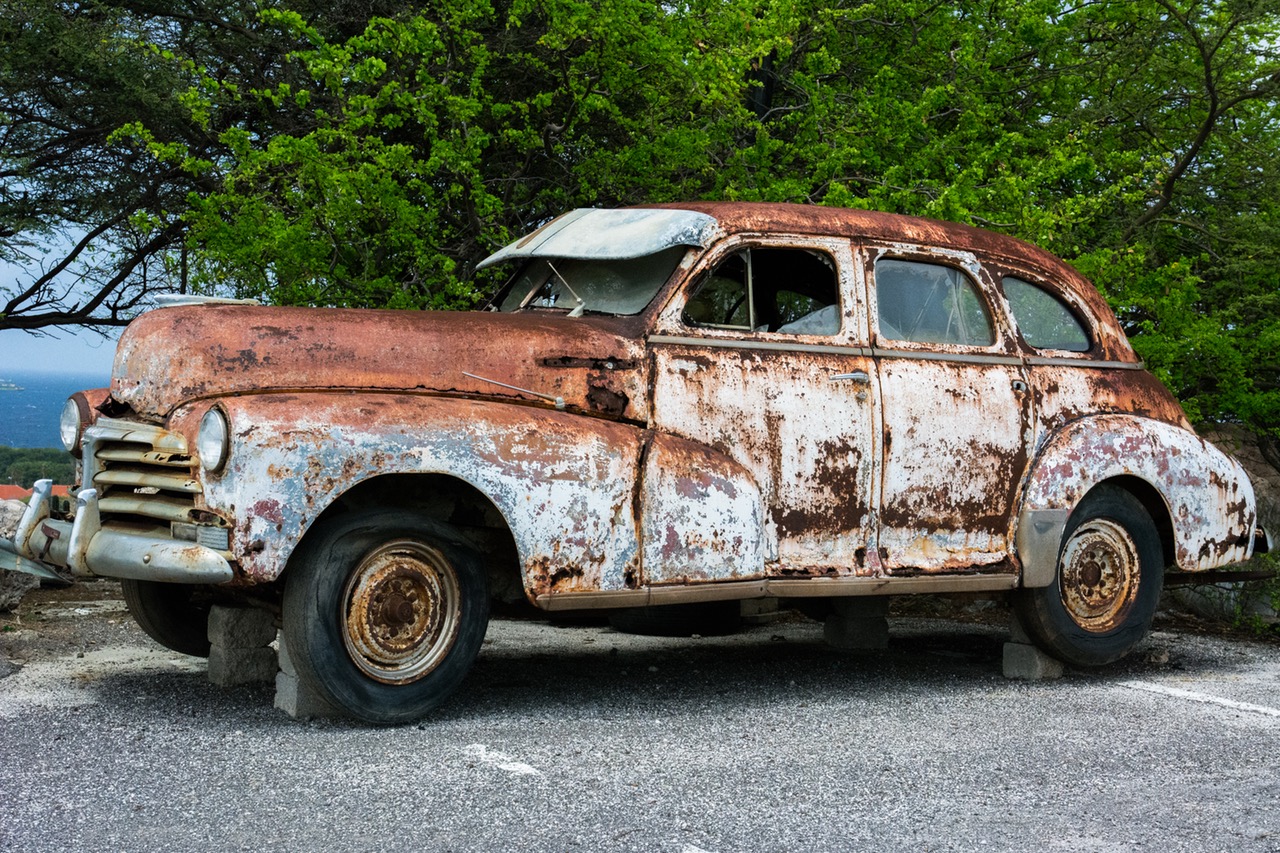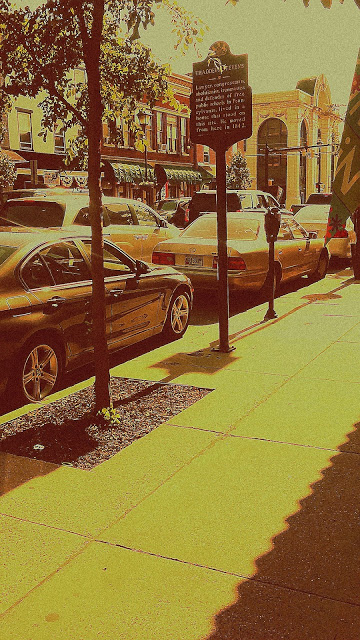“But let patience have her perfect work, that ye may be perfect and entire, wanting nothing.” James 1:4 I’ve noticed three different kinds of trials which could describe the work of perfecting Inconvenience: The broke down car-it eventually gets fixed. Disappointment: The car that just doesn’t repair — never gets fixed. Disillusionment: the car accident that is from hell.-I never want to drive again. All trials challenge every ounce of faith. They destroy natural faith. “Let patience have her perfect work.” “Let your patience endure that you may be stable, mature, and complete when I speak to you, with no defects in your capacity to listen.”Dr. Carl Stevens “Our patience, as it endures, will always bring forth a vision.” Stevens Isaiah 35:7 is an illustration of what God will do for us in the valley: “I will take the parched ground and make it a pool.” Dr.Carl…
Category: <span>Healing Cross</span>
“Who art thou that judgest another man’s servant? — to his own master he standeth or falleth. Yea, he shall be holden up: for God is able to make him stand.” Romans 14:4 A man stands or falls before God; with the risk of acceptance or rejection he stands in front of God, his Maker. What does God want from him? To be a winner of souls with wisdom required. To be a fisher of men. This is it? To have a secure philosophy? Not enough. To be a good looker? It can help, but falls short. No, to be a draw to others requires one thing — standing before God. Before God , a man is held up. He stands erect. This enables him to win other men. So, here he stands, and standing with God’s watchful eye he is guided. Guided where? — “Into all…
“Be not carried about with divers and strange doctrines. For it is a good thing that the heart be established with grace.” Hebrews 13:9 Windy surmisings must not bear us away. Ephesians 4:14 1) “…they lie in wait to deceive.” —— Who does this? n Some men who take a “stab” at life; n They throw the dice. n They take a chance at truth. n They go risky ——– Deceive Who? 2) “…children, tossed to and fro, and carried about with every wind of doctrine…” ——- How? 3) “… sleight of men, and cunning craftiness.” “To be “free” and self-determined is the temptation to man.” Folks lust to “find” themselves (in themselves) and put off incoming restraints. Psalm 12 “Emancipation” from Christ and conscience however, puts a man in a scary place because Laws, social mores, and influences of religion die. In leaving the old, new precepts will take over.…
Nothing gives more pleasure than disappointment turned to hope. It’s like the budding of a flower, petals which were shrunken in withdrawal, unraveling and stretching in beaming beatification. There is no blush — Just a brave display of approval by Him; the face-lightener, joy bringer, chin-lifting Christ. The Prize seen, we mirror Him –- reflection as in still water. Jacob looks upon his once dead son; he is alive, he is alive! Peter looks upon the once dead Christ; He too is alive. The countenance of the two is shining, a fire is lit. A narrow. Many yearn, they’re disenchanted. Others set their hearts on things, to Disparagement. The world is cruel toward certain dreams. Why? There is no furtherance, no continuance, no story-end. But, there is more to come, my friends; it is too early to quit. Here is the mistake, the hardening center, the darkening of mind. Here is…
Indispensable Some people are indispensable members of Christ’s body. Some get superabundant honor. Others we decorate in bountifulness. The list goes this way: 1) The feeble 2) The less honored 3) The uncomely These are strength-less or weak. 4) Unbeautified, shapeless and not elegant. These groups often get kicked to the curb. Matthew 25:40 teaches, “Inasmuch as ye have done it unto one of the least of these my brethren, ye have done it unto me.” How? When and why were these acts of kindness done to the least, and accounted as having been done to Jesus Himself? Let us become one of these To discover this, let us become one of these weak, indeed we are already more like them than we admit. With their shoes on our feet, how does it go? a. They have a physical blemish or crooked walk. b. They have failed a lot at vital issues.…
I find that folks want to know what is “normal,” so to speak. Does a Christian fail a lot? Does he or she sin just a little? Maybe, less and less, or do we grow weaker with age and sin more? Where does our Achilles’ heel manifest itself? What is the operating mode for living above the fragility? Do we have a besetting sin? — Gray areas? Does the free volition function freely always, or is it hindered? Do most rebound from sin and failure regularly; agreeing with God about our sin, isolating sin from our true identity, forgetting what is past? Is it common to frequently commit the sin of unbelief in still living in guilt or regret? How’s the soul? Is there harmony? What branch of the soul dominates you? Are you an avid thinker, or a determiner; a feeling kind of person, or full of fear, or self-conscious? Are…
Hope maketh not ashamed. How does it work? Penti Ikonen and Eero Rechardt say “the reaction to the absence of approving reciprocity,” is shame. Gunnar Karlson, “…the main constituents concerning shame are its anchorage in the situation to which it refers; …perpetually objectified; …the revelation of an undesired self; …a history of frozen nowness.” Lynn Jacobs PH.D says “shame fear and guilt, these are the ‘feelings about feelings;’ the boundary keepers.” “ Experiencing a forbidden feeling,” evokes shame. These afore mentioned answers exist in the realm of analysis; empirical, rational, sometimes very insightful — Psycho/Physiological stuff. Wow! “a person with internalized shame believes he is inherently flawed, inferior, and defective.” John Bradshaw. For what it is worth, we have definitions. Adam and Eve were naked and not ashamed. They disobeyed. Shame began here. They became pale, disappointed, delayed, and dry. They got steep protective boundaries, they received limits, things quit…
The blazing fire was across the canyon, too big to be controlled. Suddenly, with a turn of wind, inferno raced over canyon and river – straight toward the smoke jumpers. Thirteen lost their life that true day, three survived. Two found cover in a rock crevice. They lived, but one created his own cover by stopping, igniting the grass around him, and then lying down in the center of his own smoldering insulator. Blaze went around his pre-burned area; he made it safe. The true story is not a new one. I’m sure you have heard of it. I read it again in a book by Jonah Lehrer titled, “How we decide.” Lehrer is unfortunately an evolutionist, but uses the story to illustrate the power of the rational mind to create, when emotion is “beat back.” Interestingly, the creative fire survivor had never used the survival principle till that day.…
What is lawlessness but a conscience-seared? — a moral staple of psychological human-hood denied and burnt to a crisp. The part of us which approves or disapproves us, accuses or excuses us, or simply gives an account of oneself; conscience; has been rendered caput by artificial casting off restraints? It’s fatal to sanity. Chaos floods the banks. To do a simple self-inquiry requires this above-mentioned conscience. Seems like, this faculty’s loss would make void reflection, introspection, self-contemplation and similar activities. Guilt originates with God; no God-no guilt. Lawlessness removes the closest thing in our soul’s repertoire to a Supreme Ruler. In doing that, Lawlessness subtly attempts to counterfeit a God-given, bloody cross purchased, guilt removing redemption; creating false liberty and leaving out the vital element, Christ. How does it? Its utensil is a hot iron. With this devise one burns off a fingerprint, brands a steer, or cauterizes a wound. It…
“Superstition always breeds such sorrows, when men make themselves religious duties which God never made them, and then come short in the performance of them” Richard Baxter This excerpt from Baxter’s “The cure of Melancholy and Overmuch Sorrow, by Faith,” is based on 2 Corinthians 2:7. “…lest perhaps such a one should be swallowed up by overmuch sorrow?” The author goes on to say, “Many souls are assaulted by the erroneous, and told they are in a wrong way; and they must take up some error as a necessary truth, and so are cast into perplexing difficulties, and perhaps repent of the truth which they before owned.” What’s the problem? Why do we backtrack so easily? — Deeper than we might think. It’s an over-safeguarded soul, a provision for the flesh; just in case God’s ways and means don’t come through in the pinch. It’s hanging on to the railings…








